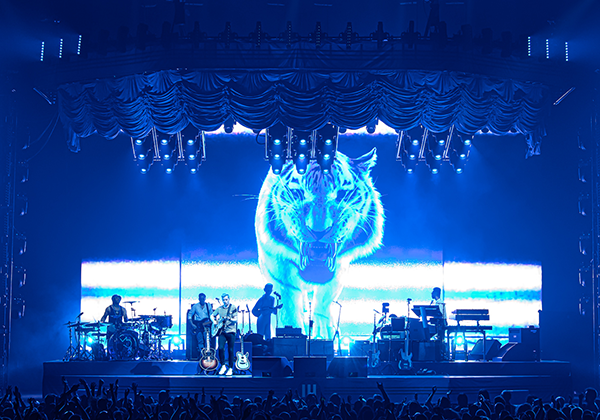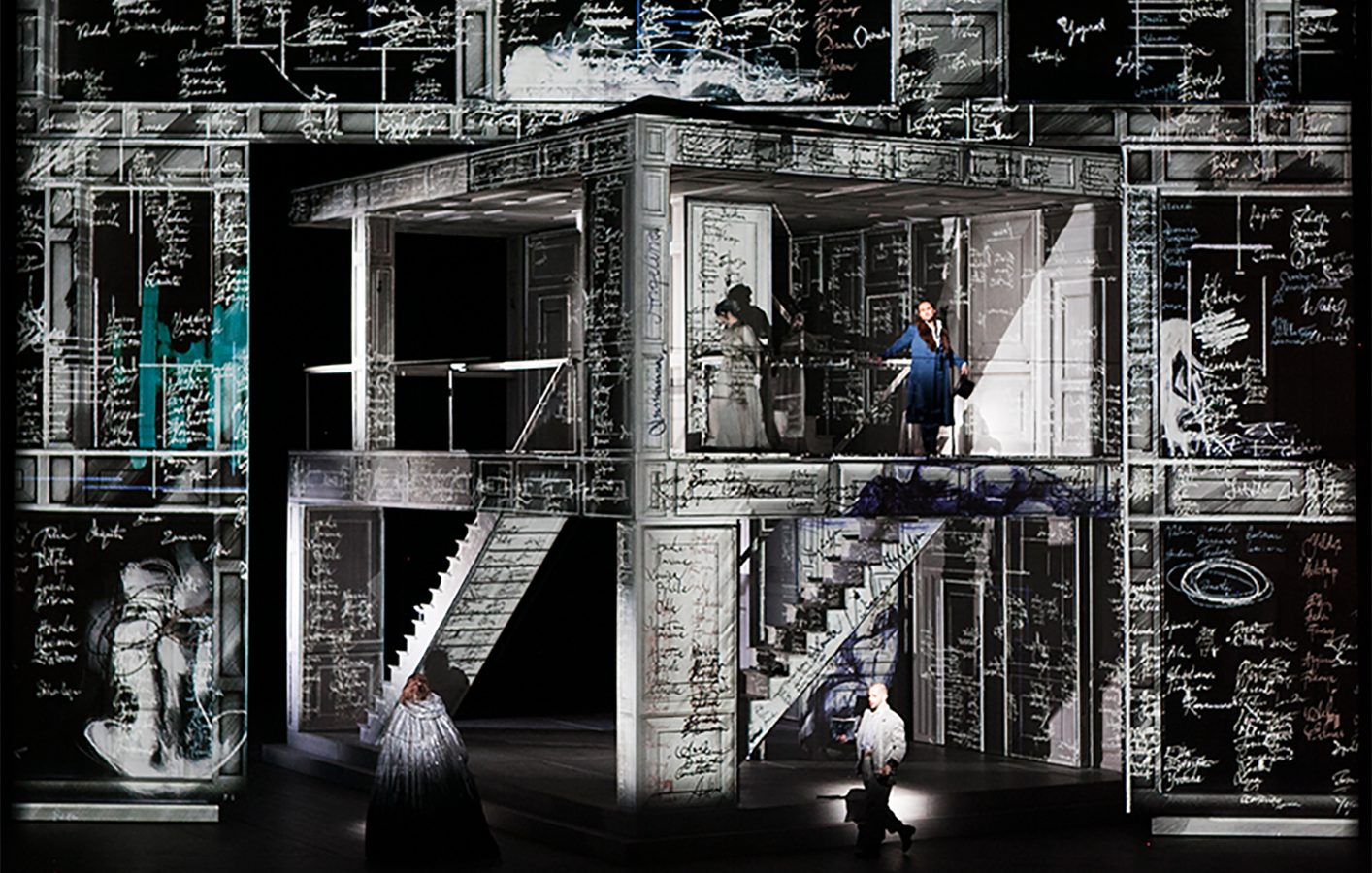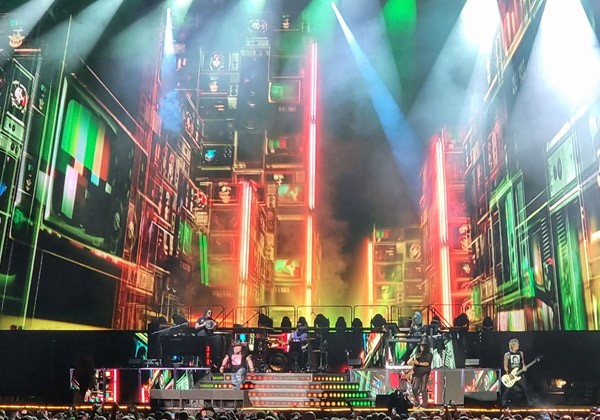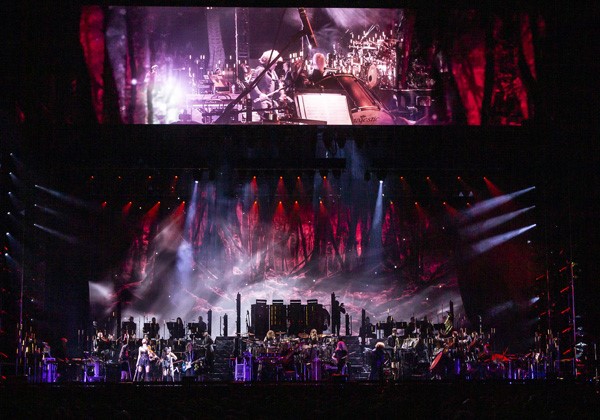
case study 2014 3 min read
Don Giovanni, Royal Opera House

Don Giovanni, used disguise from start to finish, allowing the team to explore, develop and test looks for the stage as if it were a moving storyboard.
Together with Kasper Holten, the creative team on the production, including Es Devlin (stage design) and Luke Halls (video design), worked out a fluid, malleable way to tell the story of Don Giovanni’s seducing ways by turning to video projections as a key visual.
With a two-storey high, constantly revolving house featuring doors, windows and staircases as a key stage element, Kasper and his team decided early on to use this as a blank canvas, with projections forming the main visuals throughout the production. A technically challenging project, disguise was chosen for the entire process, from simulation & show design to sequencing and delivery.
Movie created by BAJT
By using disguise from start to finish, the entire team was able to use its 3D stage simulator to explore, develop and test looks for the stage as if it were a moving storyboard. disguise works on the outset of video content being created on basis of a 3D model, giving extremely high accuracy in projection, even with moving objects.
The video above shows the simulation in the disguise visualiser, with an animated camera move slowly closing in on the set.
With Es Devlin’s design, the 3D object of the set element was carefully created, after which the UV textures were ‘unwrapped’ to form a 2D content template. Luke Halls, famous for his video work on the 2012 Olympics and U2, then used these pixel-perfect templates as guidelines to create his designs.
As the content is made for the 3D object rather than on the basis of rendered out content made from the point of view of the projector, the creative and technical team at the Royal Opera House were even able to use the developing projections during rehearsals in a smaller space with a short-throw lens.
Starting with Designer, the disguise software-only solution suitable for laptops, Luke, Es and Kasper could work on different looks for the stage. Once rehearsals started, 4U v2.5’s were used to output the video. The show operation saw disguise being controlled through a High End Systems Hog 4 lighting console. This helped save time as the production moved from the rehearsal space to the main stage.
Will Harding, Production Manager at the Royal Opera House said “I was very impressed by disguise, it allowed us to undertake something we would never have attempted with a different system, and proved to be very reliable and quick to set up on stage.”
The video below shows the end result of the same aria from the disguise stage visualiser above.
Equipment
- Designer
- Find out more
- Other equipment
4U v2.5 Master
Credits
- Show Director
Kasper Holten (Director of Opera, Royal Opera House)
- Production Manager
Will Harding (Royal Opera House)
- Video Director
Luke Halls
- disguise programmer
Gareth Shelton (Royal Opera House)
- Set designer
Es Devlin
- disguise Project setup

